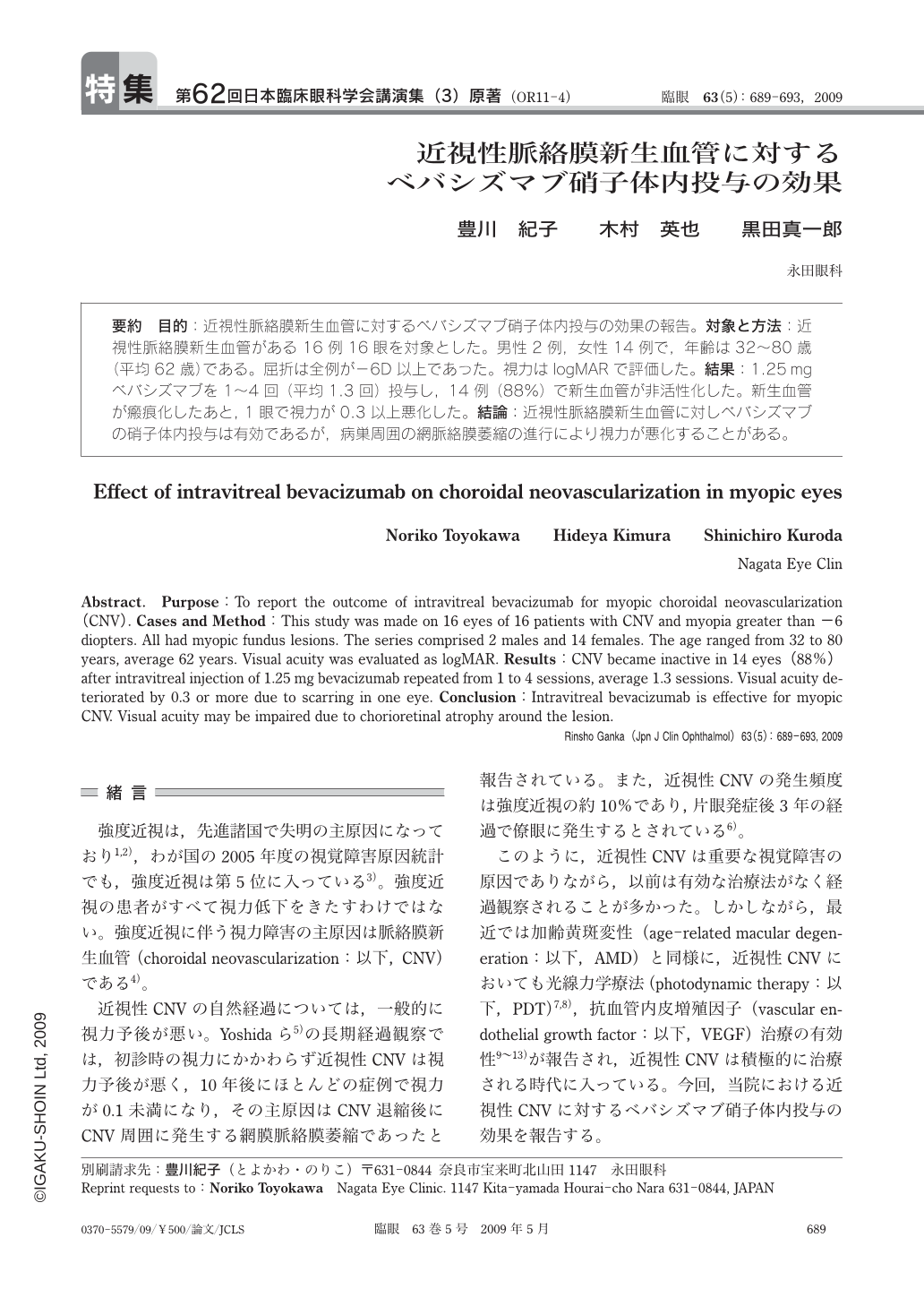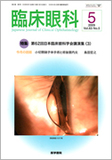Japanese
English
- 有料閲覧
- Abstract 文献概要
- 1ページ目 Look Inside
- 参考文献 Reference
要約 目的:近視性脈絡膜新生血管に対するベバシズマブ硝子体内投与の効果の報告。対象と方法:近視性脈絡膜新生血管がある16例16眼を対象とした。男性2例,女性14例で,年齢は32~80歳(平均62歳)である。屈折は全例が-6D以上であった。視力はlogMARで評価した。結果:1.25mgベバシズマブを1~4回(平均1.3回)投与し,14例(88%)で新生血管が非活性化した。新生血管が瘢痕化したあと,1眼で視力が0.3以上悪化した。結論:近視性脈絡膜新生血管に対しベバシズマブの硝子体内投与は有効であるが,病巣周囲の網脈絡膜萎縮の進行により視力が悪化することがある。
Abstract. Purpose:To report the outcome of intravitreal bevacizumab for myopic choroidal neovascularization(CNV). Cases and Method:This study was made on 16 eyes of 16 patients with CNV and myopia greater than -6 diopters. All had myopic fundus lesions. The series comprised 2 males and 14 females. The age ranged from 32 to 80 years,average 62 years. Visual acuity was evaluated as logMAR. Results:CNV became inactive in 14 eyes(88%)after intravitreal injection of 1.25 mg bevacizumab repeated from 1 to 4 sessions,average 1.3 sessions. Visual acuity deteriorated by 0.3 or more due to scarring in one eye. Conclusion:Intravitreal bevacizumab is effective for myopic CNV. Visual acuity may be impaired due to chorioretinal atrophy around the lesion.

Copyright © 2009, Igaku-Shoin Ltd. All rights reserved.


